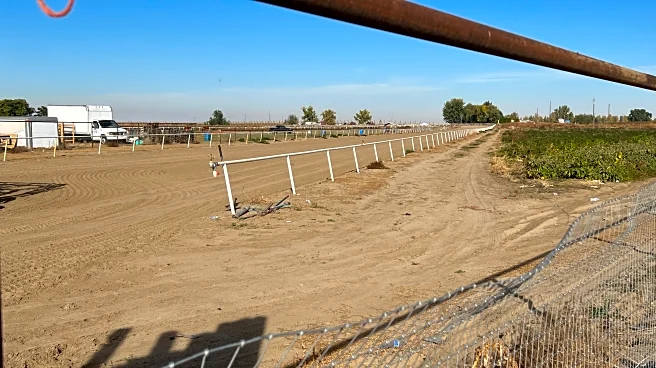What's Happening?
Ukrainian President Volodymyr Zelensky has issued a warning to NATO regarding Russia's airspace violations using drones, which he perceives as tests of European integrity. Zelensky argues that these actions are part of a broader campaign of hybrid warfare,
including cyberattacks and disinformation, aimed at destabilizing European nations. The Kremlin denies these accusations, claiming NATO is seeking conflict. Within NATO, there is a debate on how to respond, with some advocating for a strong stance against Russia, while others fear escalation could lead to a direct conflict between nuclear powers.
Why It's Important?
The situation underscores the ongoing geopolitical tensions between Russia and NATO, with potential implications for European security and stability. The airspace violations and hybrid warfare tactics could strain diplomatic relations and increase the risk of military confrontation. NATO's response will be crucial in maintaining regional security and preventing further escalation. The actions taken by Russia could also influence public opinion and political dynamics within NATO member states, affecting their foreign policy decisions.
What's Next?
NATO may need to reassess its strategy and consider stronger measures to deter Russian aggression. This could involve increased military presence in Eastern Europe or enhanced cyber defense capabilities. The alliance's response will likely be closely monitored by Russia, which may adjust its tactics accordingly. The situation could also lead to further diplomatic efforts to de-escalate tensions and find a resolution to the ongoing conflict.
Beyond the Headlines
The ethical implications of hybrid warfare, including the use of disinformation and cyberattacks, raise concerns about the erosion of trust in international relations. These tactics challenge traditional notions of warfare and require new strategies to address them effectively. The situation also highlights the importance of maintaining unity within NATO to counter external threats and protect member states.
















